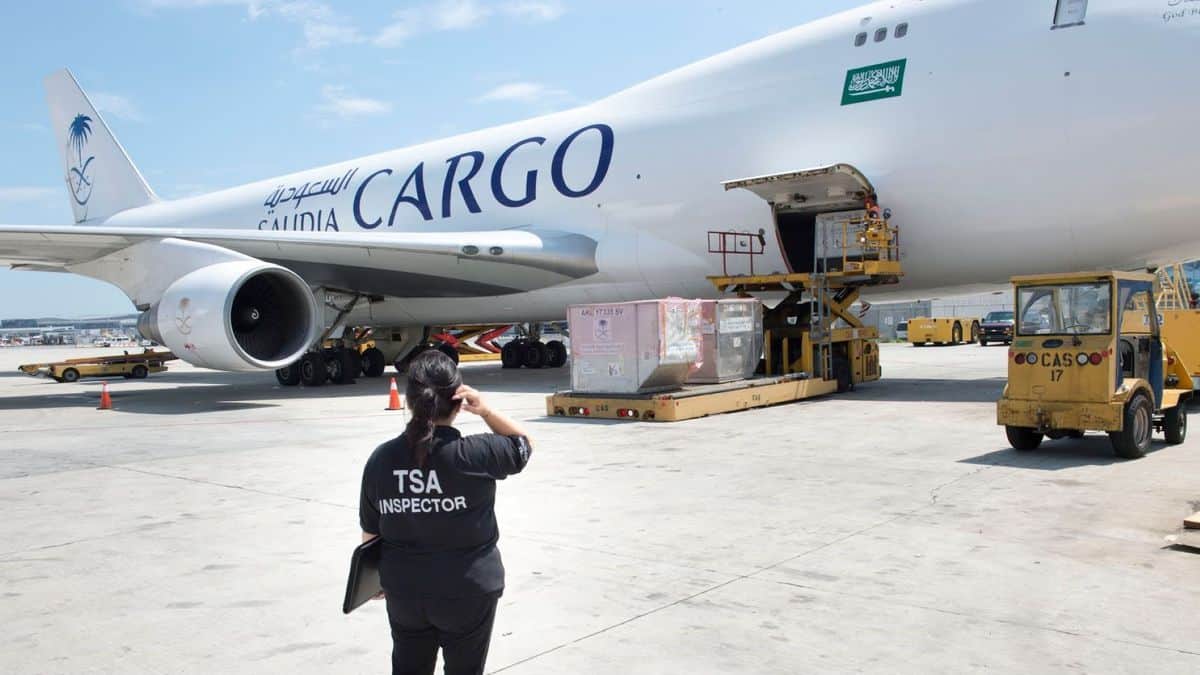
Air cargo security is a crucial aspect of global trade, ensuring that goods transported by air reach their destinations safely and securely. But what exactly makes air cargo security so important? Air cargo involves the transportation of goods via aircraft, and with the increasing volume of goods being shipped worldwide, the need for stringent security measures has never been greater. From preventing illegal smuggling to safeguarding against potential terrorist threats, air cargo security encompasses a range of protocols and technologies designed to protect both the cargo and the aircraft. Understanding these measures not only highlights their significance but also sheds light on the complexities involved in keeping our skies safe. Let's dive into some key facts that illustrate the importance and intricacies of air cargo security.
Key Takeaways:
- Air cargo security is crucial for keeping goods safe during air transportation. Strict regulations, advanced screening technologies, and the Known Shipper Program help prevent theft and smuggling.
- Technology, human factors, and collaboration with law enforcement are essential for air cargo security. Despite challenges, the future looks promising with the use of AI and new strategies.
The Importance of Air Cargo Security
Air cargo security is crucial for ensuring the safety of goods transported by air. From preventing theft to stopping the smuggling of illegal items, air cargo security measures are vital. Here are some fascinating facts about air cargo security.
-
Strict Regulations: Air cargo security is governed by strict international regulations. The International Civil Aviation Organization (ICAO) sets global standards to ensure the safety of air cargo.
-
Advanced Screening Technologies: Airports use advanced screening technologies like X-ray machines, explosive detection systems, and even sniffer dogs to inspect cargo.
-
Known Shipper Program: Many countries have a Known Shipper Program. This program allows only verified and trusted shippers to send cargo by air, reducing the risk of tampering.
The Role of Technology in Air Cargo Security
Technology plays a significant role in enhancing air cargo security. From tracking systems to automated inspections, technology helps keep cargo safe.
-
Real-Time Tracking: Real-time tracking systems allow airlines and shippers to monitor the location and status of cargo throughout its journey.
-
Automated Inspections: Automated inspection systems can quickly and accurately scan cargo for any signs of tampering or illegal items.
-
Blockchain Technology: Blockchain technology is being used to create secure and transparent records of cargo shipments, making it harder for criminals to tamper with documentation.
Human Factors in Air Cargo Security
While technology is essential, human factors also play a crucial role in air cargo security. Trained personnel and strict protocols help ensure the safety of air cargo.
-
Trained Security Personnel: Security personnel undergo rigorous training to identify and respond to potential threats in air cargo.
-
Random Inspections: Random inspections of cargo help deter criminals from attempting to smuggle illegal items.
-
Collaboration with Law Enforcement: Airports and airlines work closely with law enforcement agencies to share information and coordinate responses to potential threats.
Challenges in Air Cargo Security
Despite the advanced measures in place, air cargo security faces several challenges. These challenges require constant vigilance and adaptation.
-
Evolving Threats: Criminals are constantly finding new ways to bypass security measures, requiring continuous updates to security protocols.
-
High Volume of Cargo: The sheer volume of cargo transported by air makes it challenging to inspect every item thoroughly.
-
Global Coordination: Ensuring consistent security standards across different countries can be difficult, as regulations and enforcement vary.
Future of Air Cargo Security
The future of air cargo security looks promising, with new technologies and strategies being developed to enhance safety.
- Artificial Intelligence: AI is being used to analyze data and identify potential threats more quickly and accurately than ever before.
Air Cargo Security: The Final Word
Air cargo security is crucial for safe and efficient global trade. From screening technologies to regulatory frameworks, every aspect plays a role in protecting goods and people. Advanced screening methods like X-rays and sniffer dogs help detect threats before they become problems. Regulations ensure that all parties follow strict guidelines, reducing risks. Training programs for staff keep everyone up-to-date on the latest security measures. Technology continues to evolve, offering new ways to enhance safety. Collaboration between countries and organizations strengthens the overall security network. By understanding these key elements, we can appreciate the complexity and importance of air cargo security. It’s not just about moving goods; it’s about doing so safely and responsibly. Stay informed, stay safe, and remember, every piece of the puzzle matters.
Frequently Asked Questions
Was this page helpful?
Our commitment to delivering trustworthy and engaging content is at the heart of what we do. Each fact on our site is contributed by real users like you, bringing a wealth of diverse insights and information. To ensure the highest standards of accuracy and reliability, our dedicated editors meticulously review each submission. This process guarantees that the facts we share are not only fascinating but also credible. Trust in our commitment to quality and authenticity as you explore and learn with us.


